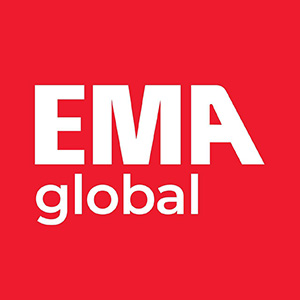Eating local food is one of the main reasons that people go overseas. It is one of the best ways to engage with the local culture and make the most of your time in a new environment. Still, with the fun comes risk. You never know when the food you eat happens to turn out bad, leaving you in the hotel room for the rest of the trip. Make sure that you and your family stay safe while indulging in the local delights with these 5 tips:
1. Get vaccinated before your trip
Some foodborne illnesses can be prevented by vaccination. Cholera, typhoid and hepatitis A all have vaccines available. This is especially important if you are planning on going to a place with a high risk of these or other foodborne diseases. Consult with your doctor or a specialised travel clinic about which vaccines are right for your trip. The number of doses needed and amount of time for the vaccine to become effective depends on the vaccine, so it is best to get a consultation early.
2. Keep yourself clean
It is not always the food’s fault. Sometimes the germs that make you sick can come from your hands. Our hands already have millions of microbes on them, and harmful ones can come from the things we touch, especially on a trip where you are outdoors a lot. To avoid letting the harmful germs get in your body, wash your hands thoroughly with soap and water. Do this before and after every meal, after using the washroom, and any time you feel like you came into contact with something particularly dirty.
If no clean running water is available, you can consider using some of your bottled water, hand sanitisers or disposable wipes. And it goes without saying that you should not put your hands in your mouth before washing them at least.
3. Be careful of what you eat
As tempting as it is to go wild and eat anything and everything on the street, it pays to be discerning in your food choices. Try to minimise eating raw or undercooked food unless you are sure they have been washed and handled hygienically. Uncooked or poorly cooked food can harbour harmful germs. These include raw meats, eggs, seafood, vegetables and fruits.
Food left out in the open for long times in a warm or room temperature environment can also start to have microbes multiply on it. Drinks that are only lukewarm or at room temperature could be subject to this too.
Instead, stick to freshly made food that is cooked at high heat as this would kill most of the disease-causing germs. Similarly, piping hot drinks are more likely to be safe to drink, but practice caution either way. Factory-sealed pre-packed food like canned tuna should be safe to eat as well.
4. Be careful of what you drink
You may be able to find water easily, but not all of it is safe to drink. It is imperative to do research beforehand to determine whether tap water is drinkable in the area you are visiting. Undrinkable tap water can cause you to get very sick if ingested as it can contain anything from parasites to viruses. If not, stick to store-bought bottled water and avoid drinking tap water or using it to brush your teeth.
Also consider the water quality when deciding on whether to drink certain beverages, as tap water is often used to make them. Even if the water is drinkable, it is always advisable to err on the side of caution and make a decision based on the visible hygiene of the establishment.
5. Get treatment if you fall sick
Sometimes, despite all the precautions, you end up getting a stomach ache. Traveller’s diarrhoea is one of the most common diseases that face tourists who ingest contaminated food or water, so it is good to know what to do if you become a patient. The best thing to do is a no-brainer – see a doctor.
If a doctor is not available, you can take anti-vomiting medication like dimenhydrinate, or anti-diarrhoea medication like loperamide. However, if you are not sure of what medication to take, the safest treatment is plenty of water and rest. In the case of severe illness, especially when there is no well-equipped hospital nearby, you may also need an emergency medical evacuation to take care of your health needs.
Generally, prevention is better than cure. If you take every precaution to keep yourself safe from foodborne illnesses, you will be much more likely to have a smooth and fulfilling trip. On the other hand, it is also essential to be prepared for the worst. There may even be an urgent need for a medical transfer, such as an air ambulance in the event of a medical emergency.

